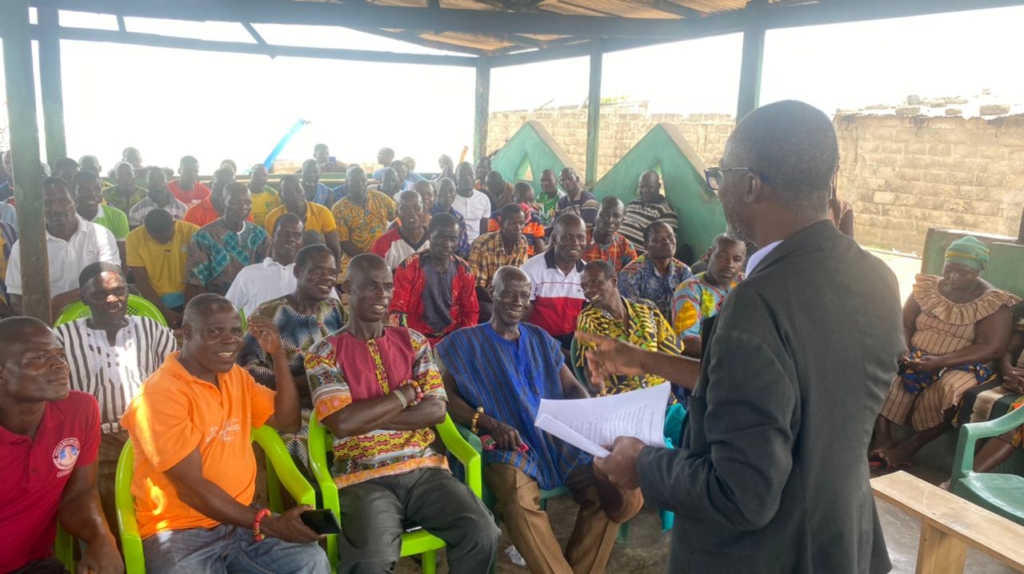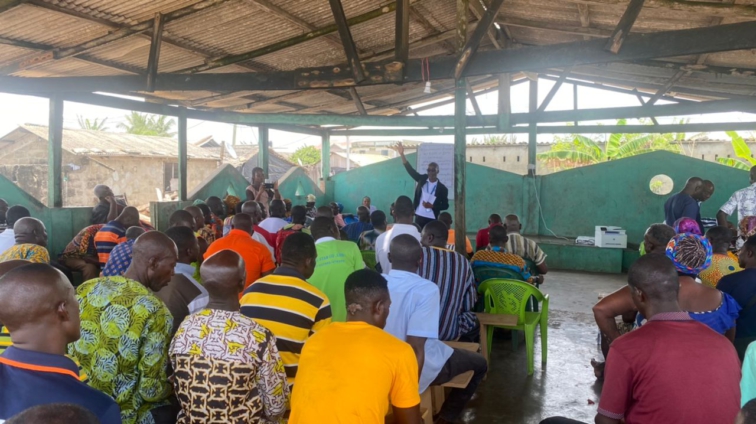Canoe owners and fishers in Ghana have pledged to work together to eradicate forced labour in marine fisheries. This collaboration is aimed at promoting sustainable practices and ensuring that the sector thrives.
The International Labour Organisation (ILO) collaborated with the Ghana National Canoe Fishermen Council (GNCFC) to provide training for members of the Council in the Western Region, to empower them to prevent and eliminate forced labour in coastal marine fisheries in Ghana.
During the training, Emmanuel Kwame Mensah, National Project Coordinator at the International Labour Office, reiterated the ILO's commitment to promoting decent work for all workers, regardless of where they work.
He highlighted the need for the Ghanaian government to ratify the C155 (Occupational Safety and Health Convention) and C. 187 (Promotional Framework for Occupational Safety and Health Convention) to ensure that the country meets the required standards in the marine fisheries sector.
In addition to the Fundamental Conventions, Mr Mensah explained that the ILO has developed technical conventions for specific areas in marine fisheries, including the C. 188 (Work in Fishing) Convention, which seeks to ensure that fishers have decent conditions of work on board fishing vessels.
This includes minimum requirements for accommodation, food, health protection, occupational safety, social security, and medical care, among others.

Cecelia Sagu Mensah, a Canoe Owner, admitted that before the training, she had a significant gap in her relationship with her workers.
She believed that being hard on them would enable them to work effectively and promote accountability. However, the training has been an eye-opener for her, and she has decided to defray from verbally assaulting her workers.
She has also committed to enrolling her workers in social protection packages like Social Security National Insurance Trust (SSNIT).
Nicholas Darko, a canoe owner who participated in the training, expressed his gratitude to the International Labour Organization and the Ghana National Fishermen Council for organizing the session.
He acknowledged the existence of forced labour in marine fisheries and stated that the training provided him with valuable insights on how to work better with his fishers to ensure their welfare and promote ethical practices in the sector.
Mr Darko pledged to share the knowledge gained during the training with his peers and called for more such sessions to keep them informed and equipped to tackle the challenges in the sector.
This collaborative effort by Ghanaian canoe owners and fishers is a step towards eradicating forced labour in the marine fisheries sector. It is hoped that more stakeholders will join in this effort to ensure that the sector is sustainable and that workers are treated fairly.
Latest Stories
-
Woman dies after being set on fire on NYC subway
41 minutes -
Elon Musk’s curious fixation with Britain
46 minutes -
EBID wins the Africa Sustainability Award
3 hours -
Expansion Drive: Takoradi Technical University increases faculties
7 hours -
SHS heads demand payment of outstanding funds before reopening of schools
8 hours -
We thank God for the 2024 general elections – Akufo-Addo
8 hours -
Coconut Grove Beach Resort marks 30 years of excellence with memorable 9 lessons & carols service
8 hours -
WAFU B U-17 Girls’ Cup: Black Maidens beat Nigeria on penalties to win inaugral tournament
9 hours -
Real Madrid beat Sevilla to keep pressure on leaders Atletico
10 hours -
Liverpool put six past Spurs to go four points clear
10 hours -
Manchester United lose 3-0 at home to Bournemouth yet again
10 hours -
CHAN 2024Q: ‘It’s still an open game’ – Didi on Ghana’s draw with Nigeria
10 hours -
CHAN 2024Q: Ghana’s Black Galaxies held by Nigeria in first-leg tie
11 hours -
Dr Nduom hopeful defunct GN bank will be restored under Mahama administration
11 hours -
Bridget Bonnie celebrates NDC Victory, champions hope for women and youth
12 hours

